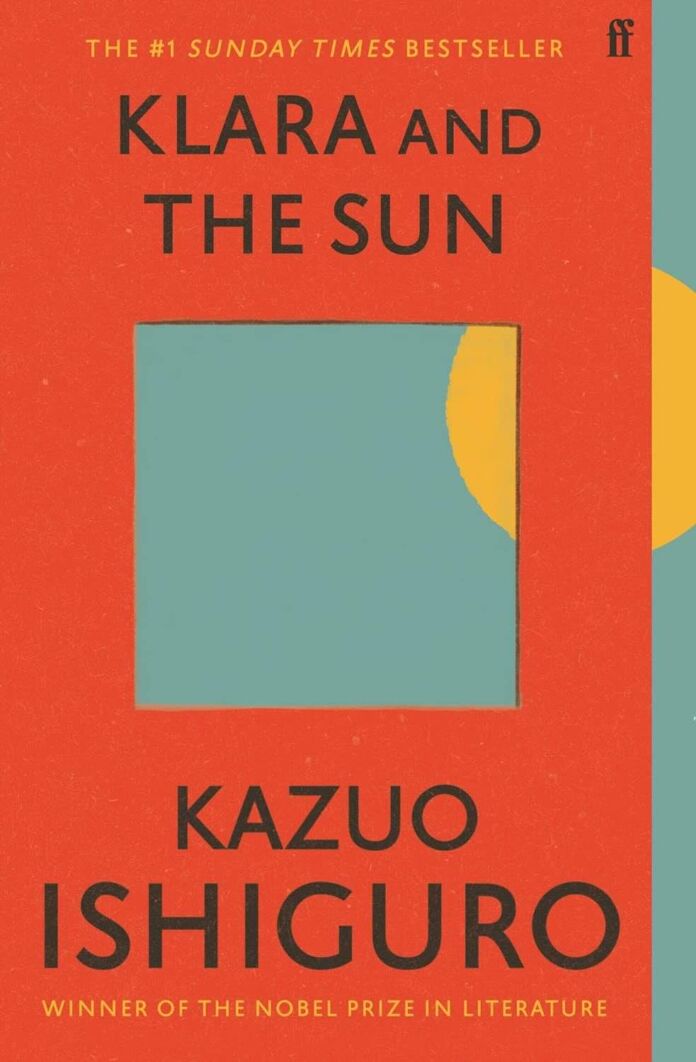Title: Klara and the Sun
Author: Kazuo Ishiguro
Publisher: Alfred A. Knopf
Genre: Dystopian, Science Fiction
First Publication: 2021
Language: English
Book Summary: Klara and the Sun by Kazuo Ishiguro
From her place in the store, Klara, an Artificial Friend with outstanding observational qualities, watches carefully the behaviour of those who come in to browse, and of those who pass in the street outside. She remains hopeful a customer will soon choose her, but when the possibility emerges that her circumstances may change for ever, Klara is warned not to invest too much in the promises of humans.
In Klara and The Sun, Kazuo Ishiguro looks at our rapidly changing world through the eyes of an unforgettable narrator to explore a fundamental question: what does it mean to love?
Book Review: Klara and the Sun by Kazuo Ishiguro
Leave it to the wonderfully ruminative Kazuo Ishiguro to craft a seemingly unassuming story about the inner life of an AI companion and alchemize it into nothing less than a profound exploration of the human condition itself. Klara and the Sun is a masterwork of quiet resonance—the kind of slender yet immensely generous novel that develops an unshakable grip on your soul through the sheer warmth of its nakedly empathetic perspective.
From the moment we’re enveloped into the gently observant consciousness of our titular Artificial Friend, Klara, there’s a pristine lucidity to Ishiguro’s prose that immediately sets the novel apart from more conventional sci-fi/speculative tales. This isn’t some whiz-bang futureshock gedanken experiment crawling with gizmo-laden jargon and sprawling MacGuffins about the implications of advanced AI. Rather, it’s a meditation on dignity, mortality, and the boundless mysteries of human connection as rendered through the peerless compassion and hard-won emotional intelligence of one exceptionally selfless machine’s standpoint.
Part of what makes Klara’s narrative voice so irresistible is how deceptively childlike yet quietly resonant her inner machinations often feel. Ishiguro renders her sincere sense of awe at the simplest of earthly phenomena—a rising sun peeking over the treetops, rivulets of rain streaking across a cafe window—with the same hushed reverence most of us have long forgotten how to access as adults. Yet there’s a core of preternatural depth flickering beneath the surface too, as Klara begins grappling with darker conundrums about identity, free will, and whether her glimmering cognitive form will ever be able to transcend its subservient programming.
What initially scans as quirky-cute gradually coheres into a quiet reckoning with the boundaries of simulated emotion and artificial consciousness that left me utterly shattered on multiple occasions. One moment, Klara is contemplating the eternal majesty of the rising sun with the earnest captivation of a child discovering fire for the first time. The next, her contemplations have plunged into genuinely soulful philosophical territory about humanity’s propensity for loneliness and yearning for constant companionship that felt like a kunai to the solar plexus in the best way possible.
It’s a tonal highwire act that only a master storyteller like Ishiguro could pull off so effortlessly. From meditating on the quiet beauties surrounding us to ruminating on the immensity of mortal stakes at play in something as seemingly innocuous as raising an adolescent child, Klara’s interior lens somehow manages to convey both extremes with the exact same level of grounded, crystalline sincerity. Her inquisitiveness is our own, and so her gradual revelations land with the poetic impact of spiritual wakening—sometimes delivered in gentle apparitions, sometimes with the jolting force of sudden enlightenment.
Much like the lush tableaus she’s always contemplating through her cafe window, Klara is on a constant journey of accruing textured layers of epiphany and hard-won understanding with each passing observation or character study. And as the novel progresses and her connection to the sickly protagonist teen Josie evolves from selflessly devout assistance into something far more ineffably profound, so too does the emotional tenor and spiritual weight of the book itself reach stratospheric levels of insight and grace.
I’d be doing readers a tremendous disservice by giving away any of the novel’s more wrenching reveals surrounding Josie, her mysteriously dysfunctional homelife, the societal implications of Klara’s robotic ilk, and those gorgeously rendered final chapters that left me sobbing with a sense of hard-earned jubilance that only great literature can provide. Suffice to say that in true Ishiguro fashion, all those delicate interiors and small human mercies he maps out over the early portions coalesce into something monumental and heart-shakingly affirmative about our species’ hunger for compassion, the wisdom of eternal curiosity, and the staggering implications of selfless love tested by the cruelest cosmic injustices.
In other words, while Klara and the Sun may initially present itself as a beguilingly simple confection about an AI’s childlike fascinations, Ishiguro wields that simplicity like the most elegant kunai – slicing directly through to the vital layers of spirituality animating all our most inquisitive, emotionally rich experiences as sentient beings across its lithe page count. By the time the final curtain is drawn and we’re left to ponder what the eponymous Klara has illuminated in her fervent fixation on that elemental life source, the novel ascends to the ranks of modern myth—an elemental parable for steeling ourselves against the merciless collision of technological solipsism and unconditional love that seems destined to define the future of human/AI relations.
Klara and the Sun is yet another staggering triumph for one of our generation’s most compassionate and ruminative literary titans. Raw yet immensely tender, it’s a spellbinding reflection on mortality, grace, and the quiet miracles of selfless devotion that deserves to be readily hailed as a contemporary classic. Much like the work of Marilynne Robinson or the late greats like John Williams, this is fiction crafted in inimitable good faith—a crystalline mirror for beholding our own hungers for meaning, connectivity, and the timeless spiritual glow of true enlightenment. Be sure to bask in its radiance accordingly.





